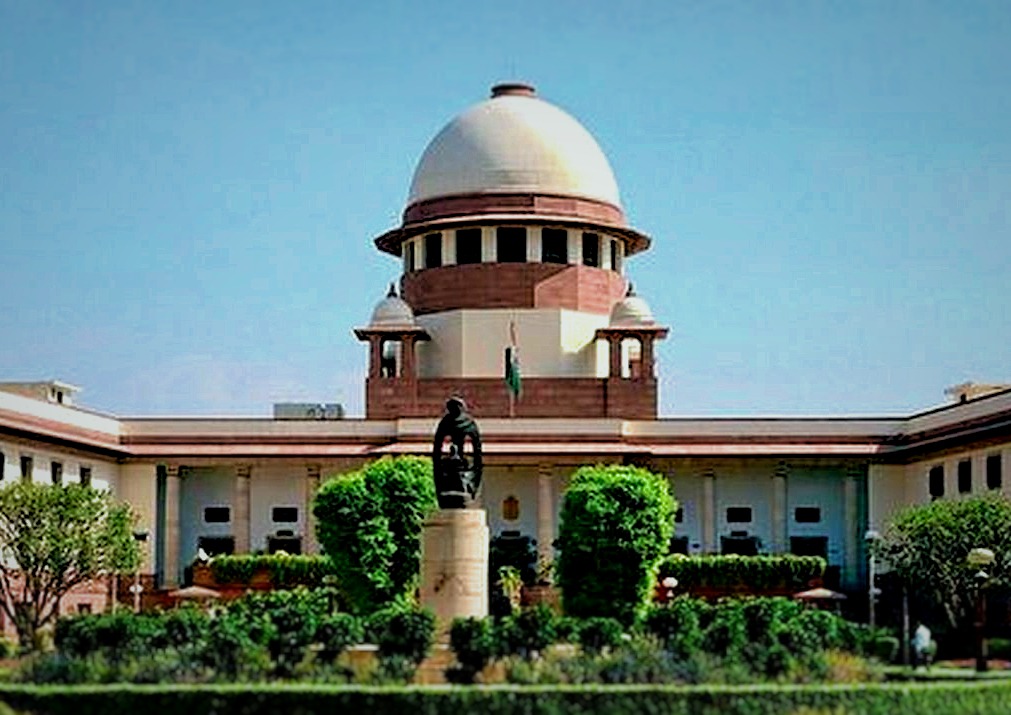In Criminal Appeal No. 1959 of 2012 -SC- Supreme Court upholds magistrates' authority to dismiss defamation complaints based on exceptions
Justice Bela M. Trivedi & Justice Dipankar Datta [05-10-2023]

Read Order: M/s Iveco Magirus Brandschutztechnik GMBH V. Nirmal Kishore Bhartiya & Anr
Chahat Varma
New Delhi, October 9, 2023: In a recent ruling, the Supreme Court has affirmed the authority of magistrates to dismiss defamation complaints based on the exceptions under Section 499 of the Indian Penal Code (IPC), even at the pre-trial stage.
Briefly stated, in the said case, the Airports Authority of India (AAI) had issued a Global Tender for the supply of 40 Airfield Crash Fire Tenders at various airports in the country. The appellant, M/s Iveco Magirus Brandschutztechnik GMBH, a Germany-based manufacturer of fire safety equipment, had granted a Power of Attorney to Mr. M.C. Aggarwal, who was the Managing Director of Brijbasi Hi-Tech Udyog Ltd. The complainant company, Bhartiya Vehicles & Engineering Pvt. Ltd, was the Indian associate of Rosenbauer International AG, another bidder in the same tender process. On July 21, 2008, AAI rejected the appellant's bid and awarded it to Rosenbauer. Following this rejection, Aggarwal lodged four complaint letters with various authorities, alleging favouritism and irregularities in the tender process. On April 30, 2009, the complainant sent a legal notice to the appellant and Aggarwal, claiming that the content of the four complaint letters was defamatory. Notably, on May 20, 2009, the appellant responded to the legal notice, denying authorization for Aggarwal to write such letters and disclaiming any involvement in their preparation. In this context, the complainant filed a complaint before the Trial Court, alleging criminal defamation against the accused. After reviewing the complaint and examining witnesses to support it, the Trial Court ordered the accused to be summoned, as it believed that a prima facie case had been established. Subsequently, the appellant's challenge to the summoning order was dismissed by the Delhi High Court.
The question of law to be addressed was whether, in the context of a private complaint alleging defamation, a Magistrate is restricted to considering only the allegations within the complaint before summoning the accused, or if the Magistrate can apply judicial discretion, and considering the exceptions outlined in Section 499 of the IPC, dismiss the complaint on the grounds that the facts alleged do not establish a case of defamation.
The division bench of Justice Bela M. Trivedi and Justice Dipankar Datta made reference to the judgment rendered in Aroon Purie and Ors v. State & Ors [LQ/DelHC/2021/1123], where it was noted that there is no strict rule dictating that the Exceptions to defamation can only be assessed at the pre-trial stage, specifically during the consideration of a petition for quashing. In certain circumstances, it may be appropriate to extend the benefit of these Exceptions at the quashing stage, and the Court possesses the authority to quash proceedings if such an extension is warranted based on the factual circumstances of the case.
The bench emphasized that the legal obligation placed upon the magistrate is to examine only the materials presented before him in accordance with Sections 200 and 202, along with any relevant statutory provisions. The magistrate is legally prohibited from considering materials that have not been introduced into the record through the prescribed legal procedures. However, if the materials themselves reveal a complete defence under any of the Exceptions to defamation, the Magistrate, upon careful judicial evaluation, can grant the benefit of such an Exception to prevent a baseless complaint from instigating an unwarranted trial.
The bench clarified that the law does not prevent the magistrate from considering whether any of the Exceptions to defamation is applicable in a particular case. There are no legal restrictions prohibiting the magistrate from such consideration, especially since the magistrate is legally trained and is expected to have a comprehensive understanding of what constitutes defamation when issuing process in a case.
“Since initiation of prosecution is a serious matter, we are minded to say that it would be the duty of the magistrate to prevent false and frivolous complaints eating up precious judicial time,” said the court.
Consequently, the bench concluded that, based on the facts of this case, the Trial Court's decision to issue summons to the accused was justified considering the materials available at that stage. The bench further stated that it is the responsibility of the appellant to establish before the Trial Court whether the Fourth Exception to defamation or any other defence is applicable and to fulfil the burden of proof during the trial. Accordingly, the bench emphasized that it is not appropriate at this stage to make a definitive judgment either way, and the matter should be left for the Trial Court to decide in accordance with the law.
In accordance with the observations and reasoning provided, the appeal was dismissed.
Sign up for our weekly newsletter to stay up to date on our product, events featured blog, special offer and all of the exciting things that take place here at Legitquest.




Add a Comment